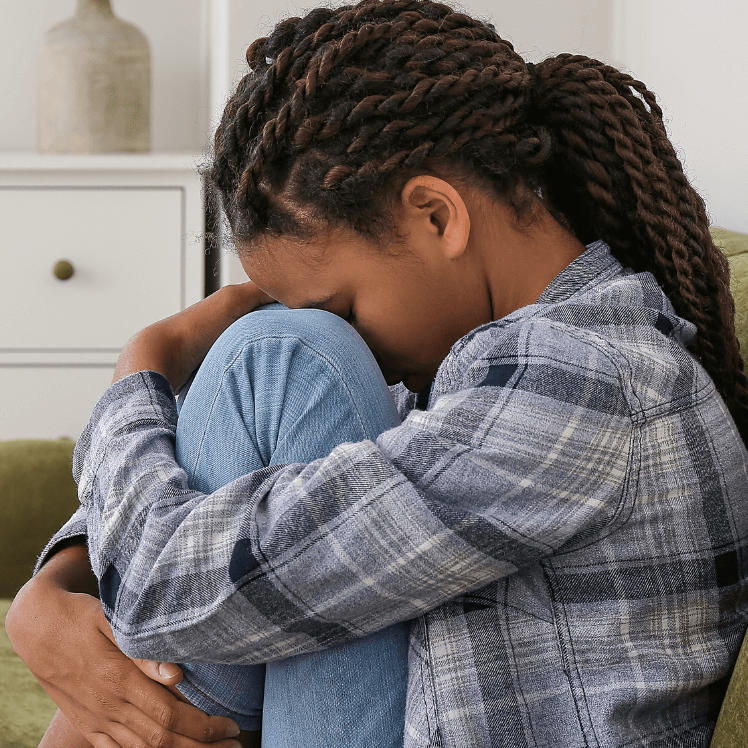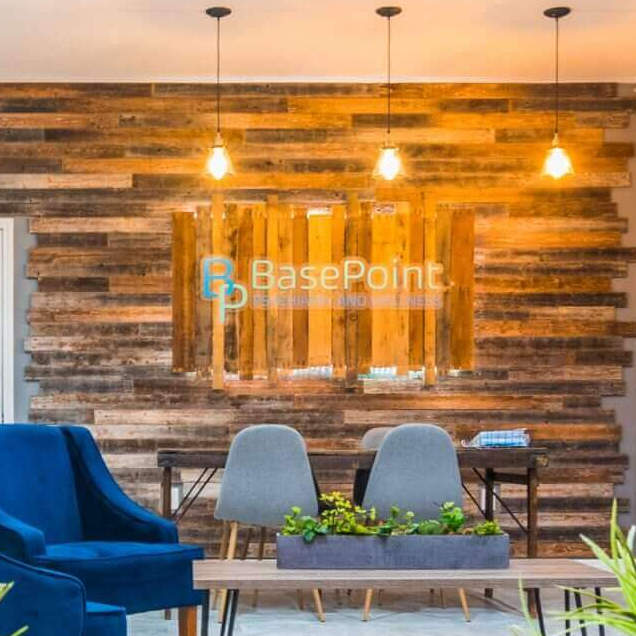UnitedHealthcare Bipolar Disorder Therapy and Treatment for Teens in Dallas, Texas
Bipolar disorder, also known as manic depression, affects more than 2 million Americans. This mental illness often develops in adolescence and continues into adulthood. BasePoint Academy offers evidence-based holistic treatments for teenagers suffering from bipolar disorder. Contact BasePoint Academy to verify your UnitedHealthcare coverage and learn about our treatment programs.
Call BasePoint Academy admission specialists to answer your questions about insurance coverage and treatment.
BasePoint Academy May Accept UHC Insurance for Bipolar Disorder Testing, Therapy and Treatment
BasePoint Academy, nestled in the heart of Texas and extending its reach across Dallas to Fort Worth, proudly stands as a beacon of hope for teenage boys and girls grappling with bipolar disorder. With state-of-the-art facilities for teenagers and young adults located in Arlington, Forney, and McKinney, we specialize in offering mental health therapy programs, a proven method for helping teens navigate the complexities of their emotions and behaviors in a supportive and understanding environment. Our dedicated team is committed to providing individualized, evidence-based care, ensuring that every teen has the opportunity to achieve balance and well-being.
Understanding the critical importance of early and accurate diagnosis, BasePoint Academy is in-network with United Healthcare insurance, potentially covering essential services such as Teen bipolar disorder testing and assessment as part of our comprehensive intake process. This commitment to accessible care allows us to extend our support to families seeking clarity and direction in managing bipolar disorder. With options that may include coverage for both medication and a broad spectrum of treatment modalities, BasePoint Academy strives to offer a holistic path to stability and growth for teens affected by bipolar disorder, backed by the reassurance of United Healthcare coverage.
Exploring the Lone Star State’s Major Sites and Cities
More than 1 million people live in Dallas, Texas, making it the 9th largest city in the United States. Once inhabited by the Caddo Tribe of Oklahoma, Dallas quickly became a trading post and is now a major metropolitan area. It boasts a rich arts and culture district and historical landmarks, and is often called “Silicon Prairie,” the Silicon Valley of Texas.
Dallas is home to the NFL Dallas Cowboys and is also the birthplace of the frozen margarita machine. A quick 30-minute drive west is Fort Worth, home to the Texas Motor Speedway—one of the largest motorsports venues in the world. Southwest of Dallas is Austin, the capital of the Lone Star State, where the South by Southwest film and music festival is held every year. South along the Gulf Coast sits Houston, home to the Johnson Space Center where NASA astronauts are trained.


What are Some Signs of Bipolar Disorder?
Many people with bipolar disorder experience drastic mood swings, going from a high level of energy—a manic episode—to extreme sadness or irritability—a depressive episode. Irregular hormone production is thought to cause a biochemical imbalance that influences these sudden mood changes. There is no cure for the disorder, although bipolar treatment and recovery are possible, most often by combining psychotherapy and medication.
It’s important to note that bipolar disorder can be hard to diagnose. Symptoms of this mood disorder are similar to other illnesses and can also result from external problems such as substance use, school performance, teenage stress, or issues within the family.
Teenage Bipolar Stats in Texas
Individuals with bipolar disorder typically develop this illness as adolescents or young adults. Although a genetic link isn’t confirmed, studies show that 80% to 90% of people with bipolar disorder have relatives with some form of depression. In Texas, half a million children under 17 suffer from some kind of severe emotional disturbance, including adolescent mental health issues, depression and extreme mood swings.
Men and women equally contribute to the 2.8% of the U.S. population diagnosed with bipolar disorder each year. Many of those diagnosed live with the disorder their entire lives. The key to managing bipolar symptoms and both manic and depressive episodes is first to speak to a healthcare professional. Once diagnosed, treatment through bipolar medication and psychotherapy can help teens with recovery.

UnitedHealthcare Bipolar Treatment Admissions and Intake
Our complimentary assessment with a licensed clinician will provide you with a recommendation for the appropriate level of care for your teen struggling with bipolar disorder. We can also check your insurance coverage levels.
Call us today to schedule a complimentary same-day assessment at (972) 357-1749 or complete our inquiry form.
UnitedHealthCare Admissions form

Who is UnitedHealthcare (UHC)?
UnitedHealthcare is a branch of UnitedHealth Group, a health service and insurance company. Founded in 1977, UnitedHealthcare offers health benefits for all ages to receive coverage for medical, dental, vision, and mental healthcare. They also work through membership programs, like Medicare and Medicaid, as well as employer-sponsored health plans.
UnitedHealthcare partners with over 1.3 million healthcare professionals and physicians in more than 6,700 hospitals across the nation. They continue to provide high-quality care for all individuals and families, no matter their lifestyle.
Does UnitedHealthcare Cover Bipolar Disorder Treatment for Teens in Texas?
Many parents wonder, does UnitedHealthcare cover bipolar disorder treatment in Texas for teens? Yes, UnitedHealthcare typically covers treatment for bipolar disorder as part of their healthcare benefits package. Its United Behavioral Health (UBH) division is a dedicated team specifically designed to assist UnitedHealthcare members with finding appropriate mental healthcare professionals that meet their needs and accept their insurance.
Under The Affordable Care Act, healthcare plans are required to offer mental healthcare coverage. These health plans must include coverage for behavioral treatment, such as youth counseling and adolescent therapy, inpatient services, and substance use treatment.
Does UHC Cover Psychiatrist Visits for Texas Teens with Bipolar Disorder?
Yes, United Healthcare teen therapy coverage plans typically cover psychiatrist visits for teens with bipolar disorder. In addition to support groups and counseling, seeing a psychiatrist can also benefit your teenager. Psychiatrists are medical doctors who specialize in evaluating physical, mental, or emotional disorders. Through evaluations and bipolar diagnosis, these doctors can prescribe and monitor medication to help those with bipolar disorder.
Keep in mind that medication affects people differently. Through proper observation, psychiatrists can monitor how your teen reacts to their prescribed medication and whether or not it helps stabilize their moods and emotions. Contact BasePoint Academy at (972) 357-1749 to verify your UnitedHealthcare bipolar disorder coverage.
Does United Healthcare Cover Bipolar Disorder Therapy and Counseling for Teens in Texas?
In most cases, UnitedHealthcare Texas individual insurance covers some level of bipolar therapy and counseling. Health benefits may vary, depending on the policy coverage you have. At BasePoint Academy, licensed mental healthcare professionals work towards stabilizing the behavior of bipolar teens, which includes coping strategies and relapse prevention.
Psychotherapy is an integral part of treatment programs for teenagers suffering from bipolar disorder. Teens can also benefit from incorporating youth counseling and teenage support groups to improve their overall mental health. Medication management, to help stabilize moods, is another component of treatment and recovery.
Does UHC Cover Medication for Bipolar Disorder in Texas?
Yes, plans usually cover some level of prescribed medication from UnitedHealthcare Texas providers. Medication management is an important component of treatment for bipolar disorder, especially at the onset of treatment. Doctors commonly prescribe mood stabilizers and atypical antipsychotics, such as lithium or valproate. These medications can help prevent the severity of manic and depressive mood episodes.
In some cases, bipolar disorder is mistaken for depression. The important thing to remember is that bipolar disorder causes both depressive and manic episodes. In order to balance or stabilize your teen’s moods, they may need both types of medication.
BasePoint Academy Accepts health Insurance
We accept most major health insurance providers in Texas and can check your treatment coverage levels on your behalf
Teenage Bipolar Disorder Therapy Centers That Accept UHC Near Dallas, Texas
BasePoint Academy offers multiple mental healthcare facilities in the Dallas, Texas metropolitan area—Arlington, Forney, and McKinney. Each location focuses on adolescent behavior and teen mental health resources, specializing in outpatient treatment programs for teenagers aged 11 to 18 years old. Our healthcare providers incorporate an evidence-based approach to provide care for teens struggling with mental health challenges or substance use.
- Arlington, Texas: 3900 Arlington Highlands Blvd, Suite 237, Arlington, TX 76018
- Forney, Texas: 713 W Broad St, Suite 200, Forney, TX 75126
- Frisco, Texas: 8275 Judges Way, Suite 100I, Frisco, TX 75036
- McKinney, Texas: 4733 Medical Center Drive, McKinney, TX 75069

Treatment Center in Arlington, Texas
Arlington, Texas was founded in 1879 and has grown to a population of over 390,000 residents. Arlington is home to the University of Texas at Arlington, the alma mater of actor Lou Diamond Phillips and former NFL player, Cliff Odom. The American Mensa headquarters is also located in the nearby town of Hurst.
- BasePoint Academy – Arlington, Texas: 3900 Arlington Highlands Blvd, Suite 237, Arlington, TX 76018, United States
Treatment Center in Forney, Texas
Forney, Texas began as a small western town once called Brooklyn throughout the late 1800s. After its name change in 1873, it became known as “Forney Prairie Hay,” as the surrounding town produced sweet, nutritious hay that became a leading export product. Forney is now home to more than 30,000 people and continues to grow by 14% each year.
- BasePoint Academy – Forney, Texas: 713 W Broad St, Suite 200, Forney, TX 75126, United States
Treatment Center in McKinney, Texas
McKinney, Texas, sits on nearly 63 square miles, just 35 minutes north of downtown Dallas. Incorporated in 1848, this small town was named after Collin McKinney, one of the people who signed the Texas Declaration of Independence. The AT&T Byron Nelson golf tournament has been held in McKinney since 2020.
- BasePoint Academy – McKinney, Texas: 4733 Medical Center Drive, McKinney, TX 75069, United States
Contact BasePoint Academy Today
Contact us today to schedule a free confidential assessment for your teen with a licensed clinician.
You can also get in touch to talk with our mental health experts about treatment needs, care options and your insurance coverage levels.
Call: (972) 357-1749Check Your InsuranceTeen Bipolar Disorder Programs Covered by United Healthcare Insurance in Texas
UnitedHealthcare Texas individual and group plans typically cover treatment programs for individuals with bipolar disorder. BasePoint Academy is one of the rehab centers in Texas that take United Healthcare insurance. We specialize in both partial hospitalization programs as well as intensive outpatient. Contact our treatment center to speak with a team member who can answer your questions about our treatment programs.
Teenage Partial Hospitalization Programs for Bipolar Disorder Treatment
A teen partial hospitalization program allows teens to participate in therapy and group counseling throughout the day and return home at night. The program usually takes place Monday through Friday, and teens receive a full day of treatment and guidance. Family therapy and education counseling are usually available, so the entire family can benefit from a partial hospitalization program close to home.
UnitedHealthcare Texas plans coverage often includes some level of partial hospitalization programs. You can speak with an admissions specialist at BasePoint Academy to determine if this treatment program is best for your teen. We can verify your insurance and provide more information about our evidence-based holistic approach to bipolar disorder diagnosis and care.
Teenage Intensive Outpatient Programs for Bipolar Disorder Treatment
A teen intensive outpatient program usually runs several days a week, where teenagers with bipolar disorder can participate in therapy and counseling. Most intensive outpatient programs require more than once-a-week therapy. Much like a partial hospitalization program, teens in intensive outpatient programs return home in the evening to practice the skills they’ve learned during the day.
UnitedHealthcare bipolar disorder coverage typically includes some form of intensive outpatient programs to help treat bipolar disorder. BasePoint Academy offers customized treatment plans to meet the specific needs of your teen. We offer holistic healthcare, with an emphasis on relapse prevention. Call us today to speak to an admissions specialist to learn more about how our intensive outpatient program can help you and your teen.

How Much Does Bipolar Disorder Treatment Cost Without UHC Insurance?
Treatment costs for bipolar disorder vary and depend on several factors. First, your health plan will determine your policy deductible, copay, and any out-of-pocket costs you may be responsible for. Your UnitedHealthcare insurance plan will likely cover some type of bipolar disorder care.
Secondly, the type of treatment and customized program your teen needs can also influence the cost of bipolar disorder care. Costs vary depending on the location of the treatment center and the specialized treatment plan. For example, an intensive outpatient program won’t cost the same as a residential treatment program. A BasePoint Academy admissions specialist can speak with you about options available to you, including government-assisted health programs, loans, and payment plans.
Contact BasePoint Academy Today
Contact us today to schedule a free confidential assessment for your teen with a licensed clinician.
You can also get in touch to talk with our mental health experts about treatment needs, care options and your insurance coverage levels.
Call: (972) 357-1749Check Your InsuranceHow Do I Check My United Healthcare Insurance Coverage levels?
If you have any questions regarding your UnitedHealthcare insurance plans, it’s best to contact a UnitedHealthcare representative. A team member can explain your coverage options in detail. Here at BasePoint Academy, we also provide assistance by verifying your health benefits. You can call an admissions specialist at (972) 357-1749 to review your plan and learn more about our bipolar disorder treatment programs.

Types of Bipolar Disorder Covered by UHC Insurance
Bipolar disorder causes intense shifts in a person’s mood, described as a manic episode or a depressive episode. It often develops in adolescence and continues throughout adulthood. Proper diagnosis and treatment can help stabilize these extreme mood swings, most often through a combination of medication management and therapy.
BasePoint Academy’s trained healthcare professionals use an evidence-based approach to help treat those with bipolar disorder. Continue reading to learn more about common types of bipolar disorder, but keep in mind these are only two examples and not a full list.
For more information, please call BasePoint Academy at (972) 357-1749.
Bipolar I Disorder
Individuals with bipolar I disorder usually experience manic episodes—high levels of energy—for at least 7 days. Depressive episodes—periods of sadness and hopelessness—that usually last for up to 2 weeks. It’s also common for people to go through depressive episodes and feel a mixture of emotions, meaning both manic and depressive symptoms at the same time. When someone experiences 4 or more episodes, either depressive or manic, within one year, this is called rapid cycling. UnitedHealthcare generally offers some level of insurance coverage to assist with bipolar I disorder treatment. Our team at BasePoint Academy can assist in verifying your insurance coverage and answer any of your questions.Bipolar II Disorder
Teens with bipolar II disorder will usually go through at least one major depressive episode without experiencing a manic episode. Instead, they often experience what is called a hypomanic episode. Hypomania is less extreme, linked to feeling unusual irritability, euphoria, and excess energy. A hypomanic episode generally lasts for a few days rather than a week. In some situations, teens with bipolar II disorder often have other mental health conditions, like anxiety. In this case, this may require a dual diagnosis. UnitedHealthcare teen counseling coverage typically covers treatment and programs to assist with bipolar II disorder. Individual, family, and group therapy can benefit your teen, as well as medication management, usually covered by your insurance.BasePoint Academy: Your In-Network UHC Bipolar Treatment Partner in Dallas, Texas
BasePoint Academy warmly welcomes families seeking support and treatment for teen bipolar disorder. With three conveniently located facilities near Dallas, TX—in Arlington, Forney, and McKinney—we’re committed to making our comprehensive care accessible to as many families as possible. It’s with great pride that we accept United Healthcare insurance, ensuring that our evidence-based, holistic care is within reach. Our dedicated team of professionals is here to guide your teen through their journey toward healing and balance, providing a nurturing environment where they can truly thrive.
Recognizing the importance of early intervention and accurate diagnosis, BasePoint Academy offers an array of services designed to meet the unique needs of each teenager. From bipolar disorder testing and therapy to medication management and bespoke treatment programs, we accept United Healthcare insurance for a variety of essential services. We understand the challenges that come with navigating bipolar disorder, and we’re here to support you every step of the way. To help get started on this path to wellness, we invite you to contact BasePoint Academy for a free bipolar disorder assessment. Let us be your partner in seeking a brighter future for your teen.
Related Guides on United Healthcare Insurance Coverage Levels
Insurance and Payment Options for Teen Treatment
Texas Teen Bipolar Disorder Related Statistics
- According to the National Institute of Mental Health, 1.9% of 13 to 14-year-olds were diagnosed with bipolar disorder; 3.1% of 15 to 16-year-olds; and 4.3% of 17 to 18-year-olds.
- 2.8% of the U.S. popular suffers from bipolar disorder. This disorder is equally prevalent in both men and women.
- Despite the fact that there is no genetic link to being diagnosed with bipolar disorder, studies show that 80% to 90% of individuals with bipolar disorder have relatives with some form of depression.
- Children with bipolar disorder often go through sudden and extreme mood swings. Children are more likely to experience extreme and destructive tantrums during depressive episodes, rather than experiencing elated periods during manic episodes.
Effectively Treat Teen Mental Health With BasePoint Academy
We can help your teen and your family address and overcome mental health concerns with expert care and a safe environment. Call today to discover the treatment for long-term healing.








